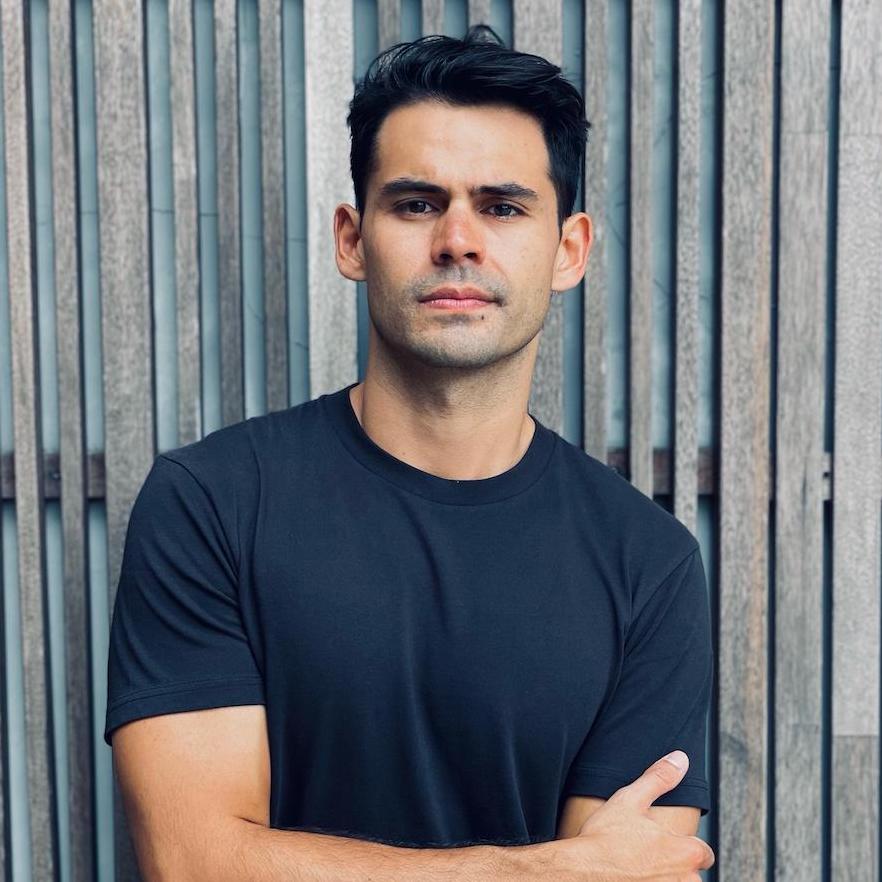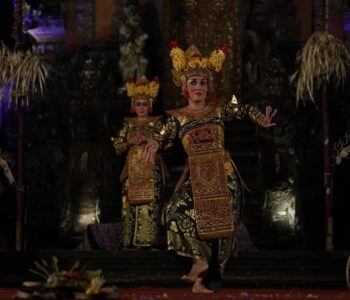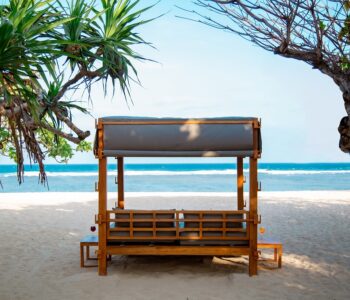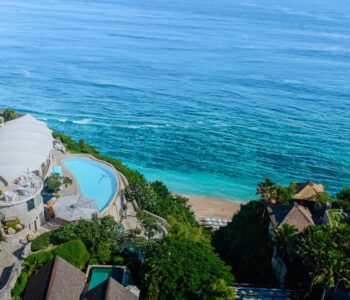With its mystical atmosphere, Bali is renowned for offering wellness experiences beyond ‘the norm’. Ketut Jaya is one to provide such an experience, offering a traditional, alternative massage unlike any other.
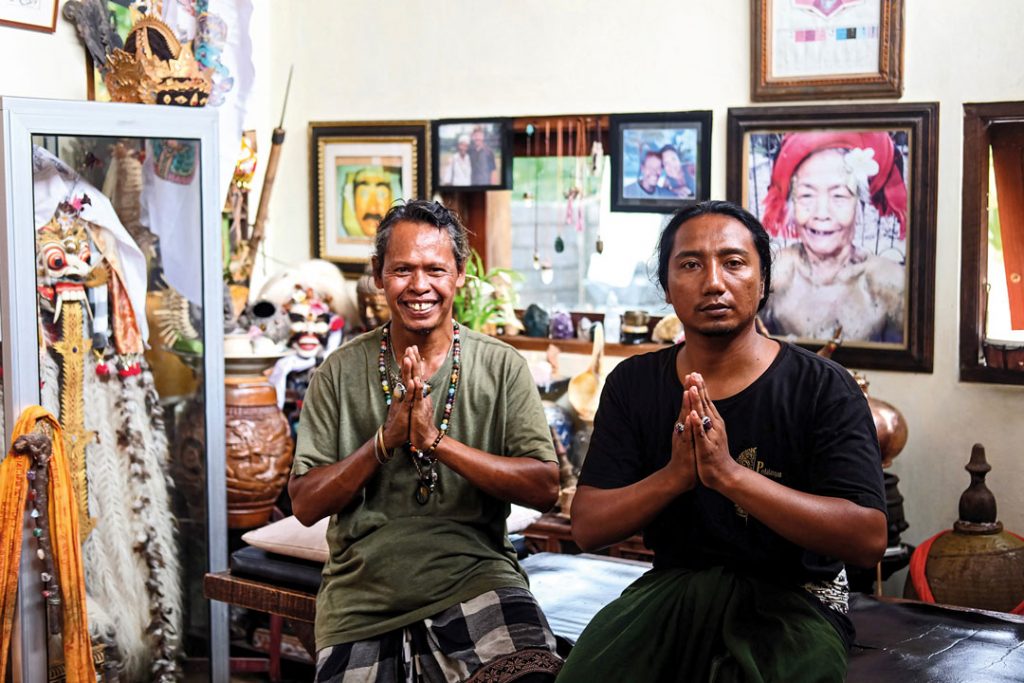
Whilst massages, meditation, spas and yoga might be on the regular repertoire of wellness in Bali, many descend upon the island seeking health beyond the seen and physical world. Perhaps sparked by the promises of healer Ketut Liyer, of ‘Eat, Pray, Love’ fame, Ubud especially has become a hub for spiritual wellbeing. Luring in the lost and astray like light to flies.
With visible dedication to their religion through rites and ceremonies, the Balinese Hindu exude a captivating image of what it means to be connected to the spiritual world. For those coming from the seemingly spiritually dead ‘west’, this connection is something to be envied and therefore, often, desired.
For the Balinese, it is but a part of life. At least before the introduction of doctors and modern medicine, it was the balians who were the keepers of health. These are the shamans or healers, whose roles range from preparing herbal remedies to reading fortunes and even becoming mediums for spirits. They remain integral for spiritual and physical health, even today.
A Journey of Discovery
Like mangkus or pedandas (Balinese Hindu priests), balians also receive a ‘calling’ to their positions, as Ketut Jaya explains. Ketut, a balian usada, explains that for so long he rejected his own calling.
“My grandfather was a healer too, he was often requested to help cleanse people’s auras and he assist with melukat, the cleansing ritual.”
It was in his blood, as it often is in Bali. By the age of 12, there were already signs that he had inherited his grandfather’s gift. He was often asked to massage family and friends, and was drawn to his grandfather’s healing artefacts.
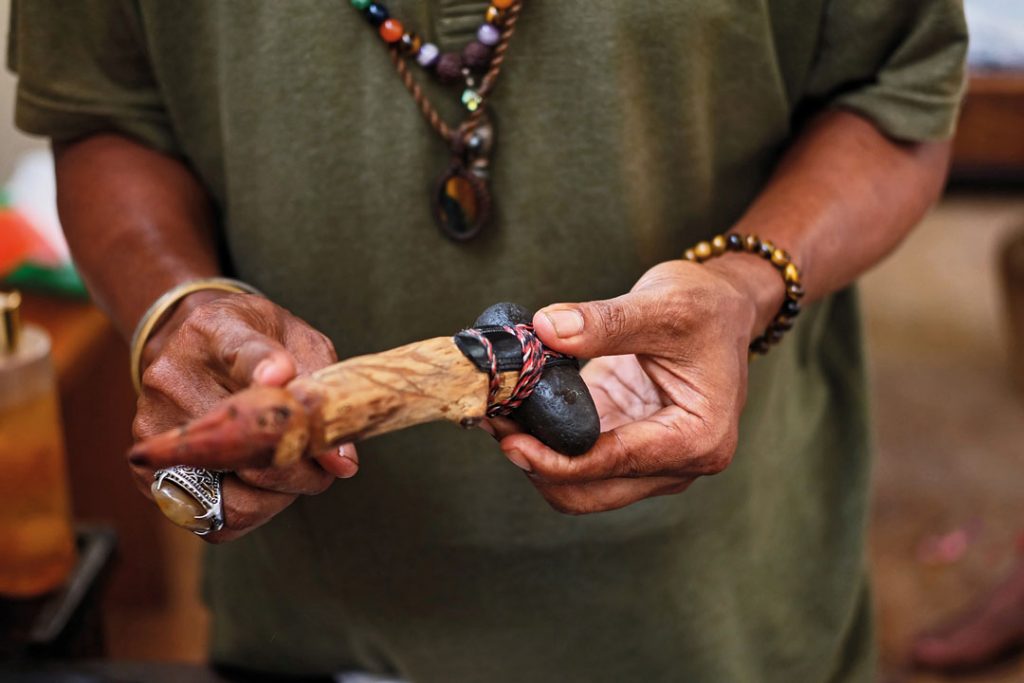
He ignored the signs though, hoping to improve the livelihood of his family by taking odd jobs that paid cash. He went from wood carver to seller on the streets of Kuta, tour guide to construction worker. With every career change though, he was always hit with cases of terrible luck, as if fate would not let him continue down those paths.
After his worst case of luck – a terrible motorbike crash – a broken leg also left him with a broken spirit. At his lowest point, he received a dream. “I was taken to the sea, to rivers, to holy springs. Wherever it was, there was tirta, holy water,” Ketut explained. “I was told I had to go east, to the holy spring where my parents were first blessed.”
So, with his dream as a sign, he took a pilgrimage to the east. After a long journey he reached the holy spring in his dream, where he did a melukat mawinten, a cleansing reserved for those entering the field of religious activity, be it a priest, balian or makers of ceremonial offerings. This marked Ketut’s acceptance of his destiny, finally he would assume his grandfather’s mantle. Fate had driven him back to his true path, his journey as a balian could begin.
Aligning body and soul
Ketut’s own journey – finally finding and accepting his calling – is actually a good metaphor for his own philosophy. “Many people come to me out of stress; they feel something is missing in their life. I describe this as being out of alignment. Their body and their soul aren’t matched,” describes the balian.
“When people pursue the commercial and the material and ignore the spiritual, or even just what their heart desires, they become out of alignment,” Ketut continues. Many of Ketut’s guests come with this feeling, in search of something more than which their day-to-day lives provide, something deeper. Real contentment, real fulfilment.
Ketut believes that everyone has a purpose in life, which is why fate pushed him towards his destiny. When people aren’t pursuing this purpose, life becomes difficult. Thus, Ketut’s treatment is centred on helping people find themselves again.
An experience with Ketut
Ketut’s house is a down an alleyway in the Blahbatuh district of Gianyar, an area known for its carving and furniture. He lives in a classic Balinese compound with a thriving garden where he grows his own herbs and medicinal plants. Clearly a lover of nature, dogs and cats roam freely, as well as his huge black hog by the name of Pakai.
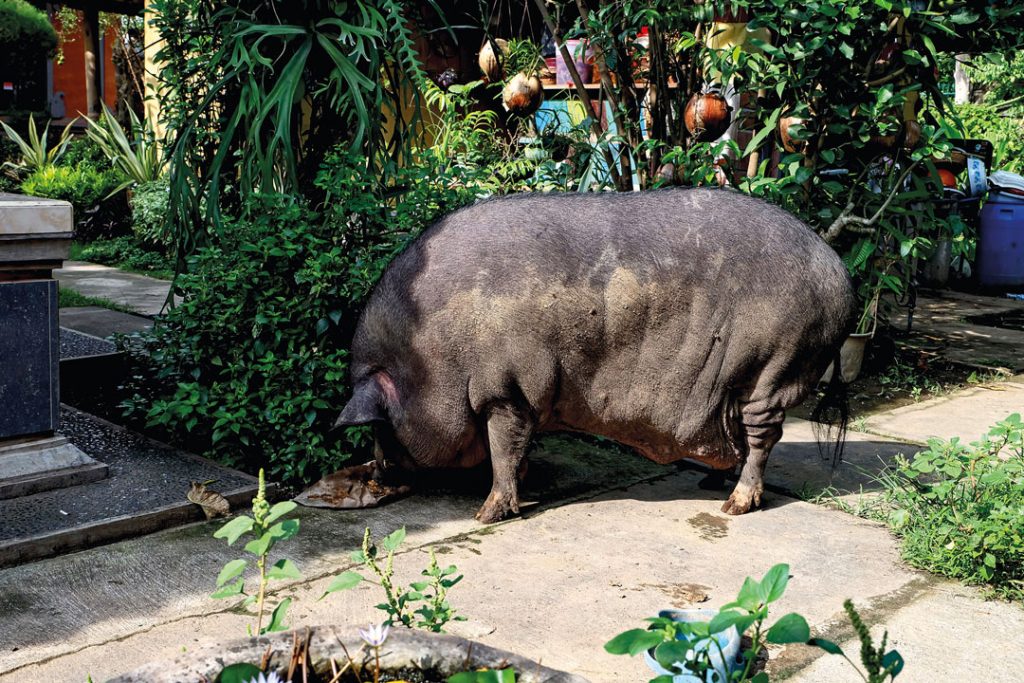
Ketut will welcome you with a warm smile, humbly dressed in a sarong, with his long wispy hair tied up. After greetings, you will be taken to the back of his house where his therapy room awaits – and already you will see how alternative your treatment with him will be!
Two wooden massage beds sit at the centre of the room, surrounded by an assortment of trinkets, tools, effigies and artefacts. Perhaps the most jarring is the full-sized ‘Rangda’ (Bali’s queen of the witches) costume that stands at the end of one bed. “Rangdasymbolises anger and ego, I want people to remember that through the treatment. We must learn to control it,” Ketut shares.
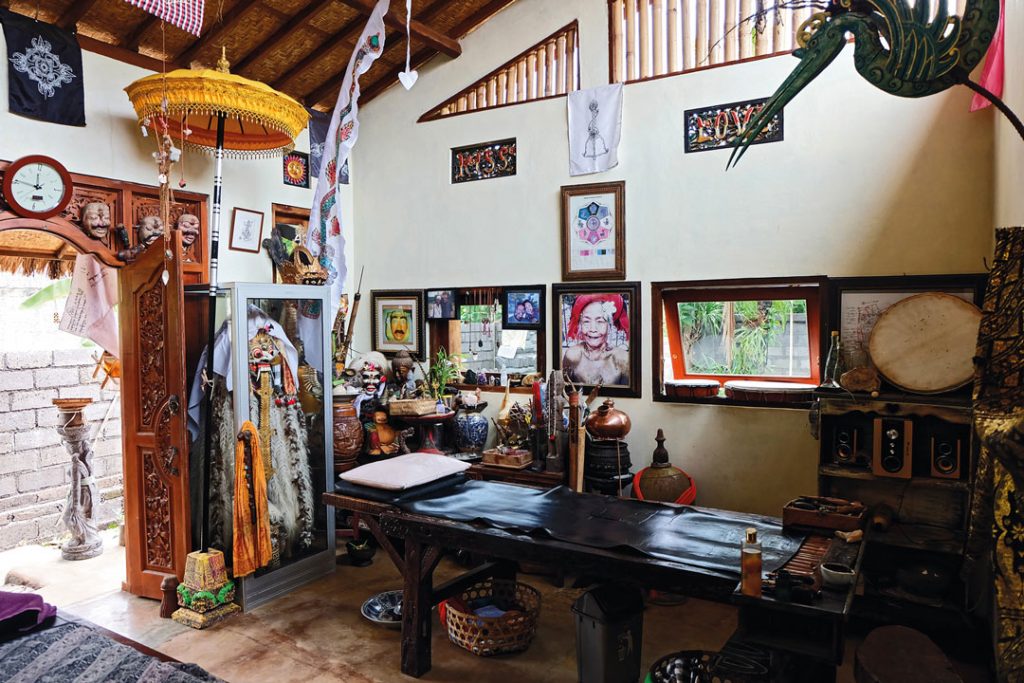
Healing crystals, Balinese masks, an Ayurvedic kettle and a row of bottled oils line the walls and shelves. A shrine burns incense in the corner. Ketut and his nephew, Nyoman, also destined to become a healer, prepare.
It starts with a Balinese blessing. Ketut showers you with holy water, not unlike a prayer in a temple, and chants Balinese mantras.
Next, it’s onto the massage table. Facedown, Ketut douses you with generous amounts of liquids that he has made himself. Some are Ayurvedic oils, another is some kind of vinegar, another is an infused arak. Dripping with herb-steeped oils, Ketut and Nyoman proceed with a deep-tissue massage, working out kinks in muscles which he refers to as blockages. These must be removed to achieve a better ‘flow’ of energy.
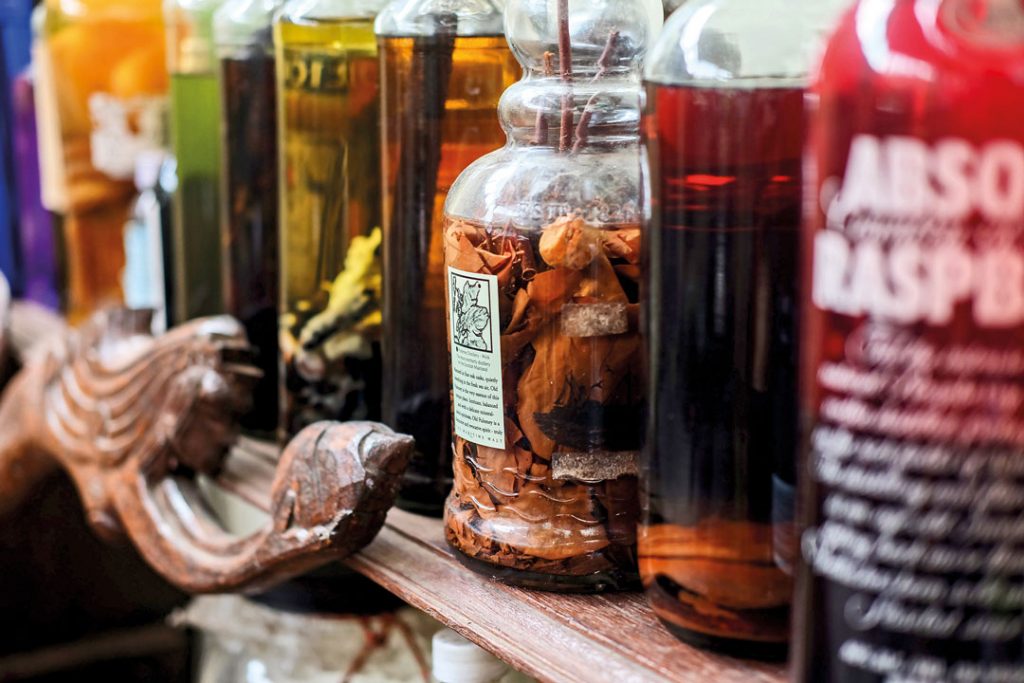
Following this is a reflexology treatment; he pulls out a box of archaic looking tools, all with pointy ends! Some are made of coral, others of ancient wood and stones. He sticks them into pressure points on your feet and toes, explaining that a physical pain denotes issues in other body parts — the more sinister ‘burning’ pain suggests problems beyond mere physiology.
The next phase requires an open mind — the skeptical, or less spiritually-inclined, may approach with trepidation. It starts with breathwork as you lie face up on the massage table; his breathwork requires you to breathe in and out heavily through your mouth, filling your lungs then emptying them completely. This heavily oxygenates your blood and everyone has different reactions. You may go light headed, parts of your body may tingle, your muscles might contract. Some cry, some laugh. The experience is very personal.
As you continue your breathwork, Ketut performs pranic healing on your body. Pranic healing is said to use energy, or life force, to heal and balance your being. Sounds of bells and singing bowls vibrate in the background; with Ketut’s chants and your own breathwork, the combination is quite overwhelming and really does put you in a different state completely.
At this point, the climax of the treatment, when your mind and body are unsure where they are and what is happening, Ketut asks you to repeat your name. “When we are lost, our name reminds us of who we are. It is our guide to find ourselves again, the way we can find alignment between our body and our spirit.” The healer explains.
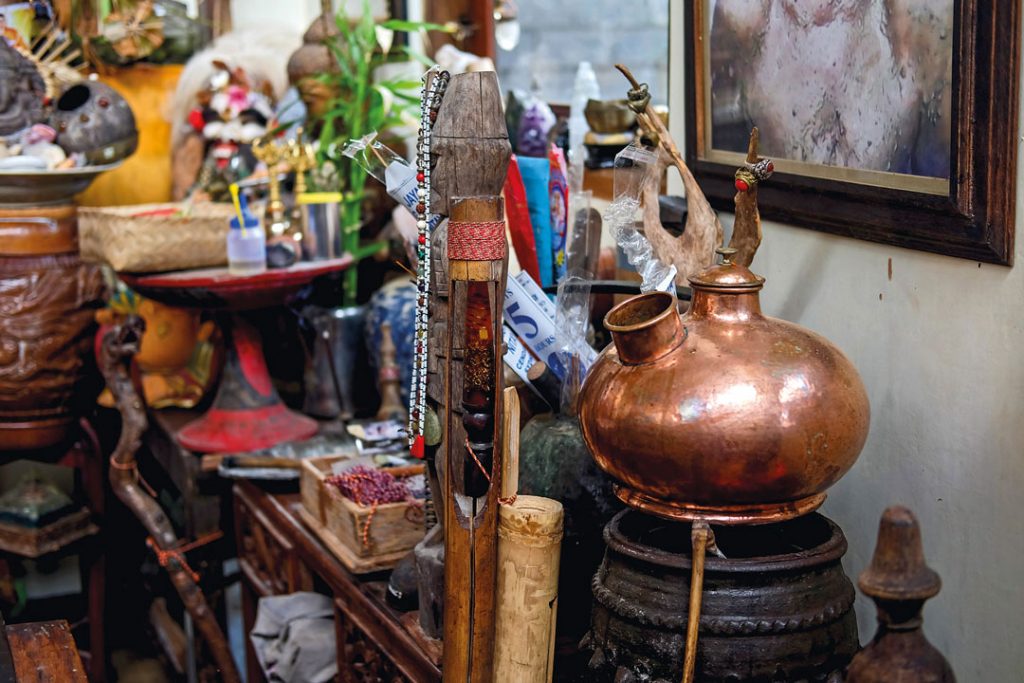
Finally, all is quiet again, Ketut performs a final Balinese blessing as you lay down, likely disoriented. You sit up and Ketut closes the treatment with an offering of his herb-infused arak, one shot, as he says it helps to calm the senses.
Visiting a Balinese ‘healer’ is definitely an intriguing experience, but (it goes without saying) it requires you take part with an open mind. Ketut says people come to see him expecting fortunes to be told, or their state to be ‘read’, to which he explains that that is not his purpose. His purpose is to help people find their own path, that his treatment is to help people align their body and soul so that they can feel themselves, and therefore live their best life.
Ketut accepts donations after treatment. At his house, he also has a traditional sauna using herbs, teaches massages and making of scrubs and tonics, hosts Agnihotra fire ceremonies and also accompanies for melukat cleansing ceremonies by request.
Ketut Jaya Healer
+62 878 6249 1927
ketutjaya1967@gmail.com

